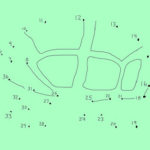We live in two different worlds, the client and the bankruptcy attorney.
“Creditors”, for debtors, means those folks who send a monthly bill, and who call if you are late.
“Creditors”, for bankruptcy lawyers, means everyone who has a claim of any kind against the client.
In his Fundamentals of Bankruptcy Practice for newcomers last night, the new Chief Judge of the Northern District Alan Jaroslavky , recounted, for a room full of newbies, some of the non obvious creditors it is our job to ferret out:
- the debt on real property deeded to another subject to the lien;
- the bonding company for a contractor;
- the ex spouse if there is a division of joint debts in the divorce;
- former customers or employees of a business who may have claims;
- partners of any sort.
To his list, I’d add tort claimants, taxing authorities, and banking institutions.
Judge Jaroslavky’s litany supported his theme that, as bankruptcy lawyers, we are also real estate lawyers, family lawyers, personal injury lawyers, and tax lawyers.
We must approach each initial interview as an exercise in issue spotting. That initial interview is not delegable to someone without our legal training. In my view, it is the most important and the most difficult work I do in a bankruptcy case. Expect the client to do it and disaster looms.
Not only is good listening required, but also active processing of what you hear. His example: when the client brings you a stack of medical bills, you must ask, “how are you feeling now?” What were you treated for, and might you incur more expenses before the course of treatment is complete? If the prospect of more bills looms, now may not be the right time to file.
Hat’s off to a Chief Judge who not only recognizes the problem of a flood of new bankruptcy attorneys into the field, but exercises himself off the bench to generously talk about what the practice requires and opens the floor to questions and a free exchange with the newest members of our bar.









I went to Judge Jaroslavky’s course a couple of years ago. He is an excellent teacher and opened my eyes to the intricacies of bankruptcy practice. Your courses have reinforced the careful analysis required for each client’s situation, and the traps that are there for new bankruptcy practitioners. This is not a quick, get up to speed, and go area of law – unless you want to risk getting into serious trouble with malpractice, sanctions and possible bar discipline.
I continued to be amazed, 30+ years into the practice, how often I see a new issue, a new facet, an opportunity in bankruptcy that I hadn’t seen before.
It is doubly satisfying that you can make a real difference in people’s lives. If this is your field, dig in and get good at it.